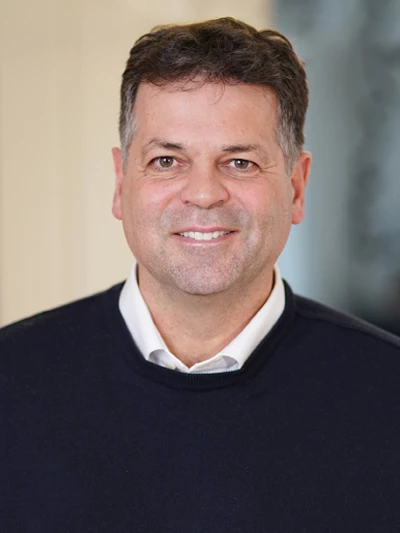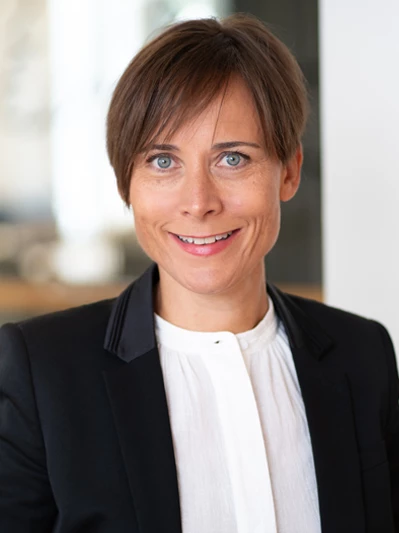About Haniel
Franz Haniel & Cie. GmbH is 100 percent family-owned and has been based in Duisburg since the company was founded in 1756. It manages a portfolio of independent companies with the goal to create value for generations as a leading purpose-driven investor.
To this end, we align our portfolio strictly "enkelfähig,” that means: along clear performance and sustainability criteria. Currently, the Haniel portfolio comprises ten investments: BauWatch, BekaertDeslee, CWS Cleanrooms, CWS Fire Safety, CWS Hygiene, CWS Workwear, Emma – The Sleep Company, KMK kinderzimmer, ROVEMA and TAKKT. In addition, Haniel manages a financial stake in CECONOMY and minority stakes in high-growth start-ups.
In 2023, the Haniel Group employed nearly 22,000 people and generated sales of EUR 4.4 billion.


Corporate Governance
Stable community of values
One feature distinguishes Haniel from other family-owned companies: since the beginning of the 20th century, corporate management has been entrusted to external managers. No family member works in the Group. Entrepreneurial decisions can thus be taken without regard to family commitments in order to achieve optimal business results.
The family members only pass on Haniel shares to each other. This means that selling to people outside the business is not possible. The more than 750 shareholders are organized in the Shareholders’ Meeting. It convenes once a year and elects the Family Advisory Board - the link between the family and the company - from its members for periods of five years. The Advisory Board comprises up to 30 family members, from which four family members are elected to the Supervisory Board by the Annual Shareholders’ Meeting. In addition, the Annual Shareholders’ Meeting elects 2 non-family members to the Supervisory Board, who form the group of shareholder representatives in the Supervisory Board along with the family members. Here, they co-determine the principles of the business policy and influence the corporate strategy. The chairmanship of the Supervisory Board, who form the group of shareholder representatives in the Supervisory Board along with the family members. Here, they co-determine the principles of the business policy and influence the corporate strategy. Shareholder and employee representatives are equally represented in this co-determined monitoring body and together they appoint and dismiss members of the Management Board, monitor their work and support them in an advisory capacity. Four members of the Supervisory Board form the Audit Committee, which also features equal representation. This monitors the accounting process and the effectiveness of the internal control system, the risk management system, the internal audit function and the compliance management system. Moreover, the committee examines and confirms the impartiality of the auditors of the financial statements.

Haniel Leadership Team
Extended management
At Haniel, decisions are made in close consultation between the Management Board and a diverse extended leadership team. The members of this team bring different personal strengths, perspectives and professional experience to the table – the best prerequisites for making the right decisions on our Enkelfähig journey.
Team
Management Team

Henk Derksen
has been with Haniel since October 2023. The Dutchman started his career at Price Waterhouse Coopers and worked 21 years for the US company Belden Inc., serving as CFO since 2012. Before joining the Haniel management team, he was Executive Vice President and CFO at the technology company VIAVI Solutions. Henk Derksen studied economics, holds a master's degree in Accounting, Business Administration and Tax, and is a registered controller at Tias Business School in Tilburg.

Dr. Alexandra Albrecht-Baba
was appointed to the Haniel Management Board in February 2024 and since August 2022, has been Head of Legal & GRC. Dr. Albrecht-Baba, who holds a doctorate in law, previously worked at HOCHTIEF AG for 15 years in various functions, most recently as Head of Group Compliance & Legal. From 2005 to 2007, she was an in-house counsel in the legal department of RÜTGERS Chemicals GmbH (now: Rain Carbon Germany).

Supervisory Board
Strong partners at the top
The Supervisory Board monitors the work of the Management Board and supports it in an advisory capacity. Both boards must agree on important strategic decisions. In this process, the Supervisory Board pays particular attention to ensuring that the Group develops in harmony with its traditional values. The Supervisory Board at Haniel is composed of six shareholder representatives and six employee representatives.


Maintain flexibility
Sound financing
The Haniel Holding uses both equity and debt to finance its investments in the portfolio companies. Equity is derived from Haniel’s more than 750 shareholders, for whom sustainability and long-term thinking are important principles. The dividend policy is measured according to the company's performance and the value of the portfolio.
We place particular emphasis on commercially sound financing when striving to meet our company goals. To ensure the liquidity of the Holding Company and create scope for strategic sustainable investment, we believe in long-term, stable and balanced financing. Cooperation with around 30 banks forms an important pillar of our external financing. The Holding Company has built up a reliable partnership with these banks and has arranged bilateral lines of credit with term of up to 5 years. The company has also expanded its borrowings on the capital market to form the second pillar of its balanced and long-term financing strategy. The bilateral lines of credit and external financing on the capital market both serve to ensure constantly the liquidity of the Holding Company. So that the company remains able to operate at all times, we pay particularly close attention to ensuring we have sufficient credit lines and a balanced maturity profile. This ensures we are always able to refinance our financial resources. Our financing agreements contain neither financial covenants nor ratings-related termination rights.
2023
Consolidated financial statements


In 2023, Haniel is systematically continuing its transformation in a challenging macroeconomic environment and realigning its Supervisory Board and Management Board for the future. At the same time, the company reports an increase in revenue, but its operating performance falls short of its own expectations.









































